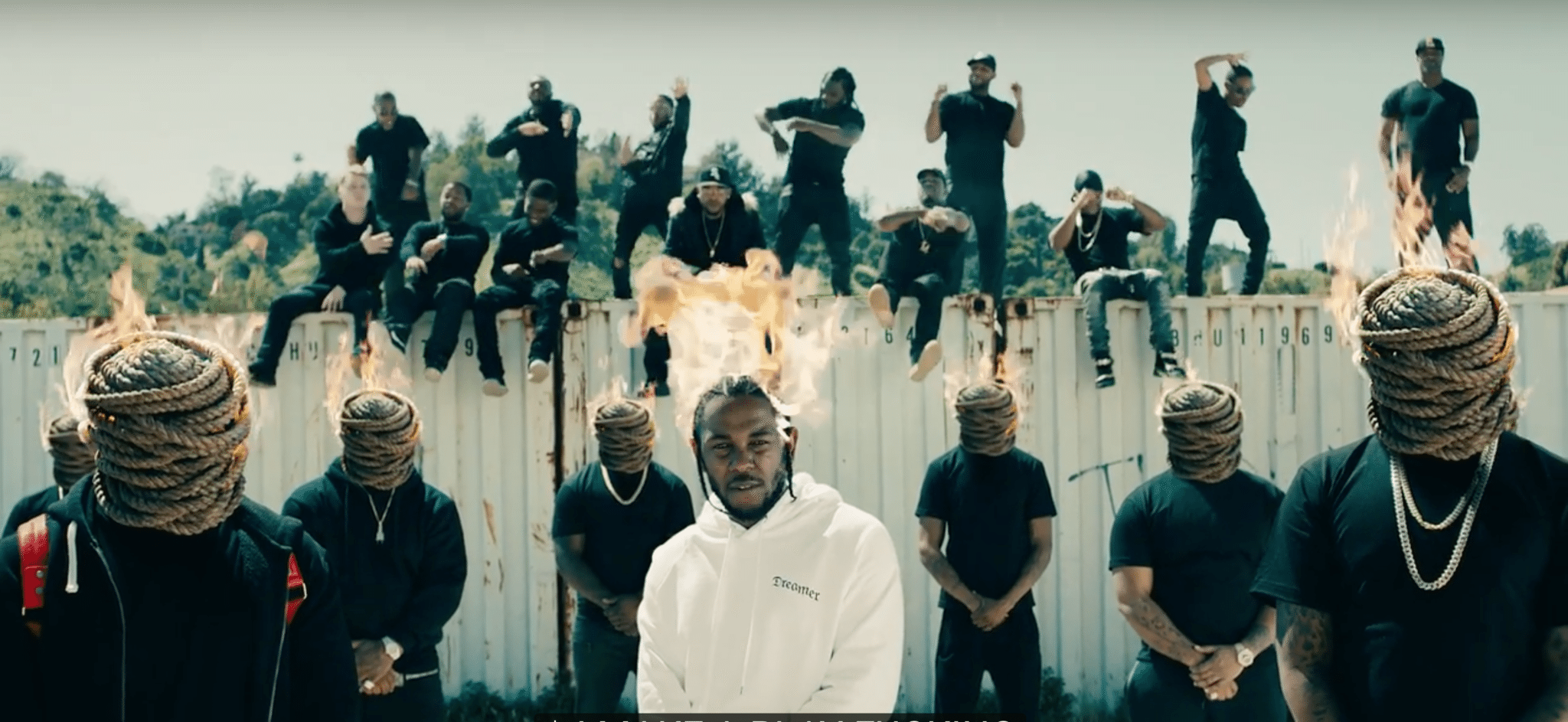DAMN. and the Black and Catholic vision of redemption, part IV

I, like many, am struggling with reckoning with the world and with the Church in the wake of another round of unnecessary death in America. For a long time, I've loved Kendrick for both his other-worldly artistry and for his religious vision. I am finally writing out my thoughts on his work to cope with the world.
If you end up reading this and you are coming from mainstream Christianity or Catholicism and don't typically listen to rap, I suggest starting by listening to the album in its completeness and following along with the annottated lyrics on Genius. Don't attempt it if you aren't willing to commit to at least two listens. After that, read part I, part II, and part III. Then dig in.
"GOD.": a broken prayer rewarded
If the Christian life tells you anything, it tells you that you are going to sin, and fall, and fail again and again. In "GOD.", Kenny[1] earnestly prays to god, flaunting his successes in a foolhardy attempt at thanksgiving. Kenny's pray sucks. It reads like a radio-hit rap song. But his poor attempt at prayer in verse one is rewarded in verse two. Subtly. Kendrick slides into a new voice; God is talking back now, speaking to Kendrick in his own language, in a way you might miss at first. Verse 2:
Fuck is you talkin' to?
Ayy, do you know who you talkin' to?
Slide on you like fallen drapes
God toss full of carnivals
I kill 'em with kindness
Or I kill 'em with diamonds
Or I put up like fifteen hundred
Get yo' ass killed by the finest
Everything in life is a gamble
Nothin' in life I can't handle
Seen it all, done it all, felt pain more
For the cause, I done put blood on sword
Everything I do is to embrace y'all
Everything I write is a damn eight ball
Everything I touch is a damn gold mine
Everything I say is from an angel
And in the Bridge, the voice of God- particularly, now, Christ- continues:
I don't rush shit, fuck shit, always your shit, my shit
Cannonballs to ignite shit, morning to the night shift
I'm on, I ain't sorry for it
Asked for a piece of mine, you charged me for it
I wanna see sometimes if you ignore it
I'm in the streets sometimes and can't afford it
I got a bad habit, levitatin', duckin' haters
Oh my! My heart is rich, my heart is famous
I remember when I realized what he was doing here. It is absolutely incredible imagery, so subtle and nuanced. So daring, especially considering what the white Church's milquetoast conception of what and who God is, and it demarcates what every single other song of the album has been pointing to. It's track 13, and finally, finally, we can start to see where Kendrick is going with this...
"DUCKWORTH."
The final song of the album, "DUCKWORTH.", completes the late exposition. The voice of God entered the scene in track 13, and here on 14- the last in the album- the early Bridge sample represents God's voice again:
Darling, I told you many times
And I am telling you once again
Just to remind you, sweetheart
That my—
From here, Kendrick uncovers Kenny's private revelation: how God intervened in his life to make it all possible. This true story- in which Kendrick and the fictional Kung-Fu Kenny bleed together- is the story of how Kendrick's father, "Ducky" in the song, leaves behind the gang life in Chicago to move to LA and start a new life to raise his sun, Kendrick Lamar Duckworth. In LA, he bumps heads with another gangbanger, Anthony "Top Dawg" Tiffith, while working at a chicken restaurant. Ducky offers Anthony free chicken, and works up a relationship with him, hoping to avoid a stick up. It would turn out that Top Dawg would end up going straight and signing Kendrick, only to later realize that the kindness of Ducky was actually that of his star talent's father.
For Kendrick, the repeated refrain of "Who the fuck prayin' for me?" is answered. It turns out that through the divine grace of God, he was saved. His grandmothers' prayers were being answered all along, as each link of the chain was given grace in particular moments to choose the Good:
You take two strangers and put 'em in random predicaments
Give 'em a soul so they can make their own choices and live with it
Twenty years later, them same strangers, you make 'em meet again
Inside recording studios where they reapin' their benefits
Then you start remindin' them about that chicken incident
Whoever thought the greatest rapper would be from coincidence?
Because if Anthony killed Ducky, Top Dawg could be servin' life
While I grew up without a father and die in a gunfight
With that, the frame closes, with a sequence of reversed samples from each song in the album, in reverse order[2], finally culminating with the opening line of the spoken word; Lady Justice's condemnation has been undone by grace and redemption.
as previously, I'll use Kung-Fu Kenny- Kenny for short- to denote the fictional version of Kendrick that narrates most of the album. Kendrick's full name, then, will refer to Kendrick the man, as the author of the piece. ↩︎
I should not fail to mention that Kendrick designed the entire joint to be played in reverse order smoothly, and that in reverse, it plays out with Kung-Fu Kenny squandering the grace of God by failing to choose the Good. The man painted the Sistine Chapel for our times, and managed to get radio play with it. ↩︎
